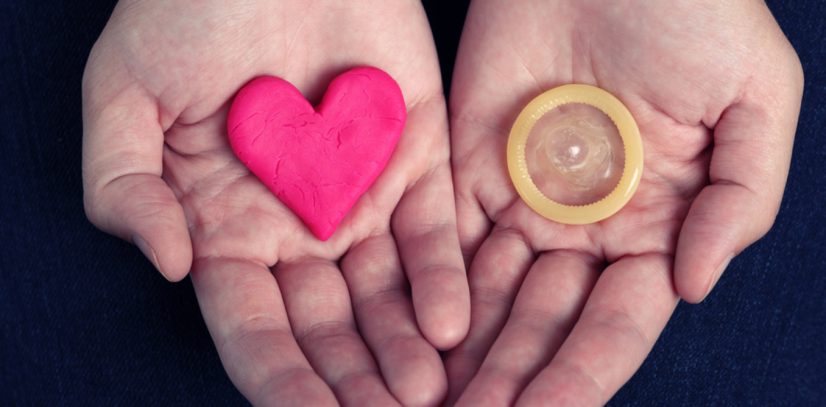Thanks for all the questions for Ask Oz December 2022. There were some interesting ones for sure. Let’s have a look at what’s on your mind this month.
Ask Oz December 2022
Hey Oz: I have been going with my boyfriend for about 2 years now and most times he has been using a condom. But more recently he wants to go bareback and he insists that I cannot get pregnant whilst I am on my periods. I am pretty sure I can. What are the chances of getting pregnant whilst I have my periods?
A. According to Verywellhealth, women can get pregnant anytime during their cycle, including during their periods. Unprotected sex or sex without condoms increases the risk of unwanted pregnancy. Contraception is essential to avoid an unwanted pregnancy. Emergency contraception or IUDs can prevent pregnancy within 120 hours of sex without a condom.
If you have unprotected sex due to birth control failure, take emergency contraception or an IUD and breathe before making a plan. It is important to remember that the fertile window falls between days 11 and 21.
But pregnancy is still possible outside of this time frame. It is best to use contraception consistently to prevent unwanted pregnancy.

Ten Steps to Make Sure you Don’t Get Pregnant
Here are 10 steps you should take to make sure you do not get pregnant whilst on your periods (or any other time).
1. Use a reliable form of contraception
Even if you are on your period, you should always use a reliable form of contraception, such as condoms or birth control pills, to prevent unwanted pregnancy.
2. Be aware of your ovulation cycle
Even if you are on your period, it is still possible to ovulate and get pregnant. It is important to track your ovulation cycle to avoid having unprotected sex during your fertile period.
3. Use barrier methods
Barrier methods such as condoms and diaphragms are effective in preventing pregnancy during periods. These methods also provide protection against sexually transmitted infections (STIs).

4. Avoid unprotected sex
It is important to avoid having unprotected sex during your period. Sperm can survive in the body for up to five days and can fertilize an egg when ovulation occurs.
5. Keep track of your menstrual cycle
Knowing your menstrual cycle can help you avoid having unprotected sex during your fertile period. You can use a calendar or a period tracking app to keep track of your menstrual cycle.
6. Avoid sexual intercourse during heavy bleeding
It is best to avoid having sexual intercourse during heavy bleeding, as it can increase the risk of infection.
7. Use spermicide
Spermicide can be used in combination with other methods of contraception to prevent pregnancy. It works by killing sperm before they can fertilize an egg.
8. Talk to your partner
Communication with your partner is key in preventing unwanted pregnancy. Make sure your partner is aware of your menstrual cycle and the importance of using contraception.
9. Avoid using menstrual cups during sex
Menstrual cups should not be used during sex, as they can dislodge and cause leakage of menstrual blood, increasing the risk of pregnancy.
10. Be prepared
It is always a good idea to be prepared with emergency contraception, such as the morning-after pill, in case of accidental unprotected sex. It is important to use emergency contraception as soon as possible after unprotected sex.
Hey Oz: Why can’t I orgasm during sex?
A. There are various reasons why a woman can’t orgasm during sex. Some of the common physical reasons include lack of stimulation, medical conditions, medications, hormonal imbalances, and lifestyle factors. Psychological factors like anxiety, relationship issues, and past experiences can also be responsible for difficulty in achieving orgasm.
It’s important to talk to a healthcare provider to rule out any physical causes. Seek help from a sex therapist or doctor who can offer strategies to help achieve orgasm.
Stimulating erogenous zones like the clitoris and G-spot can also help achieve sexual pleasure and orgasms. Regular pelvic floor exercises and sexual stimulation education may also help in some cases.
Great Resources to Check Out
1. What can cause orgasm problems in women?
2. When Women Can’t Orgasm (and What to Do About It)
3. Anorgasmia in women – Symptoms and causes
Tips That can Help you Achieve Orgasm
1. Communicate with your partner
It is important to communicate with your partner about what you like and what feels good. Your partner may be able to help you achieve orgasm by providing the right type of stimulation.
2. Experiment with different types of stimulation
Different people respond to different types of stimulation. Try experimenting with different types of touch and pressure, including clitoral stimulation, vaginal stimulation, and G-spot stimulation.
3. Focus on relaxation and arousal
Achieving orgasm requires a combination of relaxation and arousal. Try engaging in foreplay and setting a relaxing and comfortable atmosphere to help you get in the mood.

4. Use Sex Toys
Sex toys can be a great tool for achieving orgasm. Experiment with different types of sex toys for couples, such as vibrators or dildos, to find what works best for you.
5. Try different positions
Different sexual positions can provide different types of stimulation, which may help you achieve orgasm.
6. Practice kegel exercises
Kegel exercises can help strengthen the pelvic floor muscles, which can lead to stronger and more intense orgasms.
7. Consider seeking professional help
If you have tried different techniques and still cannot achieve orgasm, consider seeking professional help from a sex therapist or a healthcare provider who specializes in sexual health. They can help identify any underlying medical or psychological issues that may be preventing you from achieving orgasm.
Ask Oz: Your Questions Answered For November 2022

Unlock intimate insights! Consult sex therapists, sexologists, and doctors at Adultsmart. Ask Oz for free expert advice, guaranteed response in 30 days.








Leave a Reply